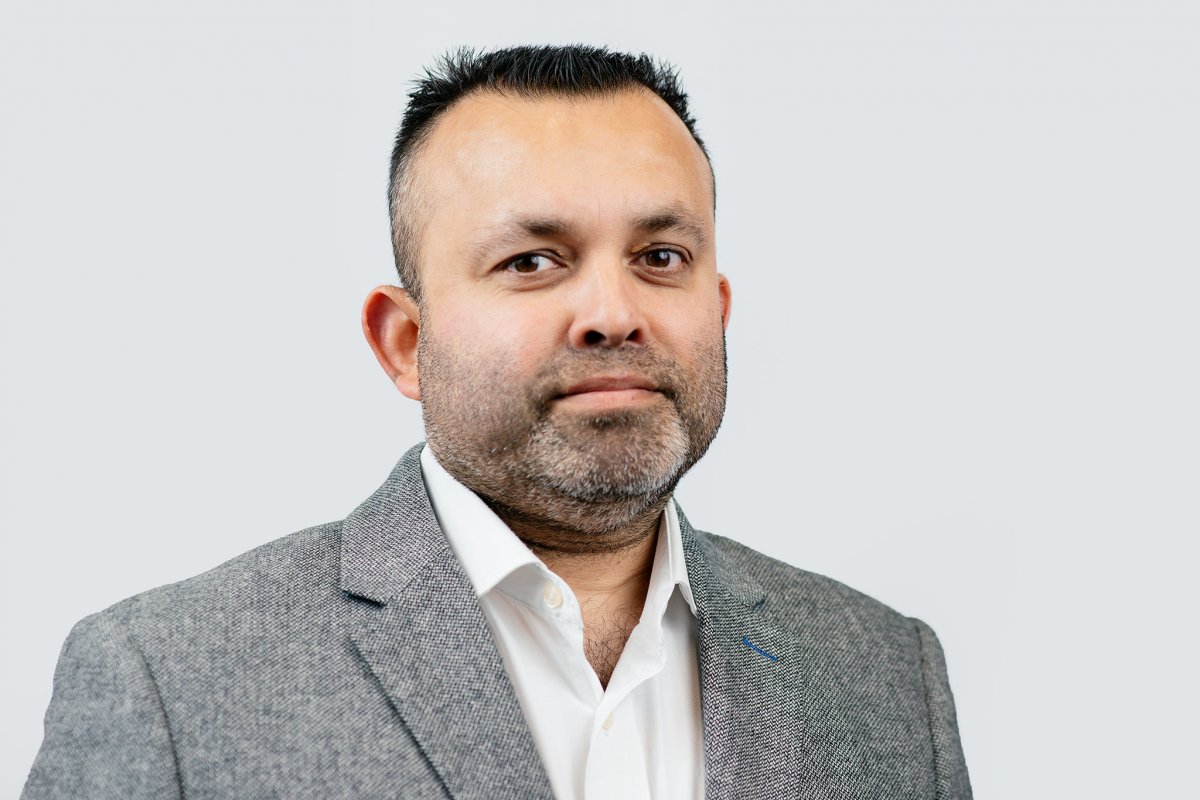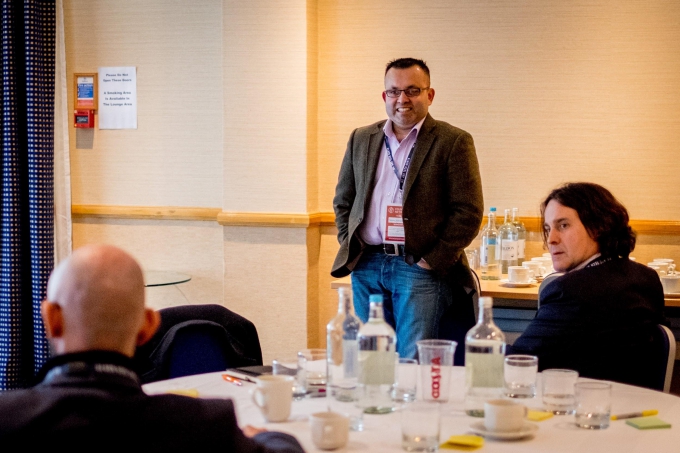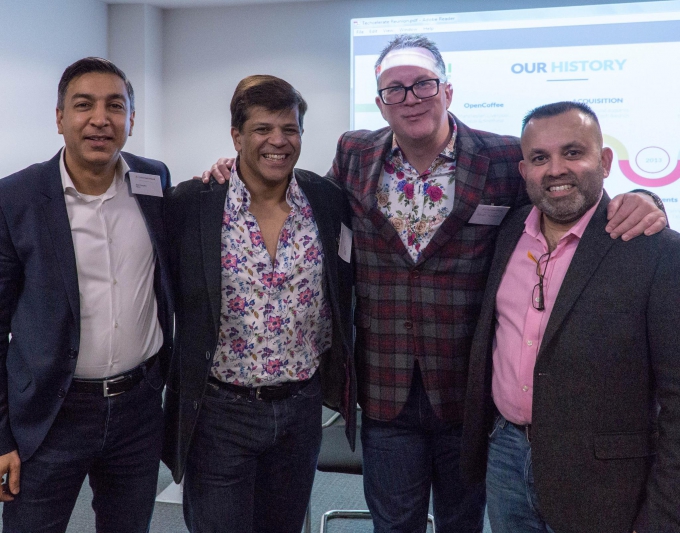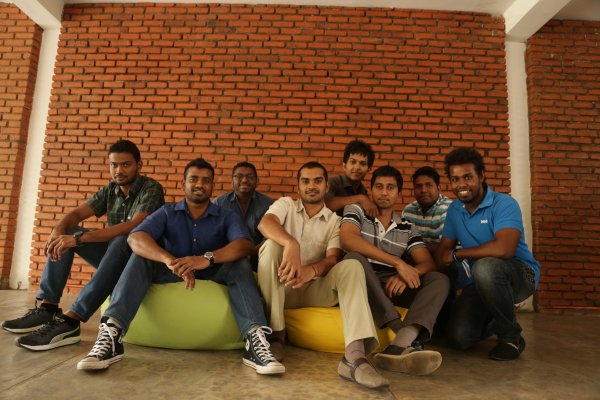
Serial entrepreneurship is as taxing as it is rewarding. It can be as much a rush as racing fast cars, playing the stock market, or juggling knives. Or perhaps it’s more a compulsion, than anything else.
While managing multiple ventures may seem exciting, it does have its trade-offs. Focus is split between multiple ventures, and resources need to be carefully allocated so that no one company suffers.
To find out more about what serial entrepreneurship involves, we spoke to Manoj Ranaweera. Manoj is a Manchester-based tech entrepreneur who is juggling three ventures at the moment: Venture 9 which is a SaaS consultancy; UnifiedVU which is a user interface for cloud applications; and Techcelerate, which helps tech companies grow. Ranaweera told us that he’s started 11 ventures since 2004: not all of them have been registered, nor have all of them been tech companies. Not all of them have been successes either.
A Matter Of Focus

Image courtesy: Manoj Ranaweera
When it comes to dealing with multiple ventures, focus is important. Or rather, the managing and dividing of that focus. Investors, Manoj tells us, will usually demand that you focus only on the company they have invested in. Which is understandable given that they want to ensure that you give maximum value to shareholders. In Manoj’s case, most of his ventures were funded by him, which gave him a free hand in how he split his time.
Successfully juggling multiple ventures depends on many factors, Manoj tells us. Some businesses are complementary to each other, which makes it easier. But others may require a different approach. At present, since Techcelerate Ventures is about to be funded, Manoj is taking a break from UnifiedVU to grow Techcelerate instead.
There’s no particular formula when it comes to making these decisions. Rather, a lot depends on circumstance, opportunity, and priority.
The Business-To-Business Market
Businesses that serve other businesses are not usually perceived as being as exciting as those dealing directly with the consumer public. The colourful marketing campaigns, the product launches, and the hype are all utilized to reach as many people as possible and to get as much attention as possible, when it comes to consumer-focused startups. B2B is more focused and targeted than B2C, and not nearly as dependent on the hype train.
Most of Manoj’s ventures are business-to-business. When asked about this preference, Manoj tells us that all businesses are continuously looking to improve their processes, which means there is always a ready market. With business applications, it is easier to identify a problem and work out a solution. With consumer-facing applications, it is harder to figure out what makes a product popular. He sites Snapchat as one example of this. Luck and trends play an important part in the success of consumer-facing products.
With a B2B startup, success is measured through metrics such as Monthly Recurring Revenue (MRR), Annualised Recurring Revenue (ARR), Customer Acquisition Cost (CAC), churn, and many more. As a basis, investors look for the growth of MRR.
For consumer applications, success is measured against Monthly Active Users (MAU) and the time they spend on your application. Irrespective of how good your application is, Manoj tells us, you are fighting against how much time an individual will spend on your application per day versus the time spent on behemoths such as Facebook, Instagram, Youtube, and several others. Your goal, he says, ought to be to get up to 10 million users as quickly as possible before even thinking about monetisation. Once you get there, you need to deploy ‘hooks’ to increase your MAU before focusing on further growth and monetisation.
The Challenges

Image courtesy: Manoj Ranaweera
One of Manoj’s self-confessed challenges is over-optimism. He always tries to self-fund his ventures, which can lead to problems later on. He tends to have trouble raising investment, an issue he plans to address through his new company, Techcelerate Ventures.
Another problem with multiple ventures is dealing with co-founders. When Manoj started edocr.com in 2007, he felt that his co-founders didn’t believe in the product enough to dedicate the time required to make it grow. They had other businesses that took up their attention. It took him until 2015 to push the company far enough that it had a successful exit.
Manoj envies companies like CapsuleCRM in the UK and Creately in Sri Lanka where the co-founders have managed to stay together after many years of founding the company. He hopes his newest companies will have the same kind of team spirit.
On Sri Lankan Startups
When asked whether he believed Sri Lankan startups should remain hyper-local, or expand regionally, Manoj states that companies should take advantage of the local economy first. They can use Sri Lanka as a test bed, using the opportunities they have here to iron out problems and achieve traction first. Trying to go international from day one does not always work. However, he clarifies, this also depends on the product, the problem it addresses, and the location of buyers.
He sites a few examples:
Takas, he says, is ideal for the local market. But if they try and branch out to other South Asian countries, they may struggle. Rather, they’d have a higher rate of success by focusing on local expansion.
When it comes to Yoho Bed, once their model is proven in Sri Lanka, it would make sense to launch in places like the Maldives, and other South Asian countries.
Products like Creately or Hiveage can be launched international on day one, Manoj states, after they’ve sorted out the initial bugs. But to truly succeed, companies like these need to promote themselves aggressively internationally.
On Startup Ecosystems Now
Manoj started all 11 of his ventures in the UK, which is a very entrepreneur-friendly nation. He tells us registering a new company costs less than £20, and that there are a number of tax incentives for companies and investors. While most companies are based out of London, cities like Manchester too are blossoming with startups, and momentum is pushing ecosystems to expand.
Manoj started the Sri Lankan Tech Startups Facebook Group in 2011 as a way to find software developers for his tech startup at that time: edocr.com. The group took off quickly, and now has over 3000 members, most of whom are heavily involved in the tech and entrepreneurship space.
Sri Lanka is starting to pay more attention to its startup ecosystem and taking things more seriously, Manoj feels. He believes now is the time for the government to introduce startup-friendly policies, and tax incentives to promote tech entrepreneurship and investment.
Note: This article is part of the Sparklers Series by crowdisland.lk that focuses on Sri Lankan entrepreneurs who have made a global impact with their ventures outside Sri Lanka. The series looks at the real-life ups and downs of their entrepreneurial journey, and the particular challenges they faced building startups in other parts of the world.








